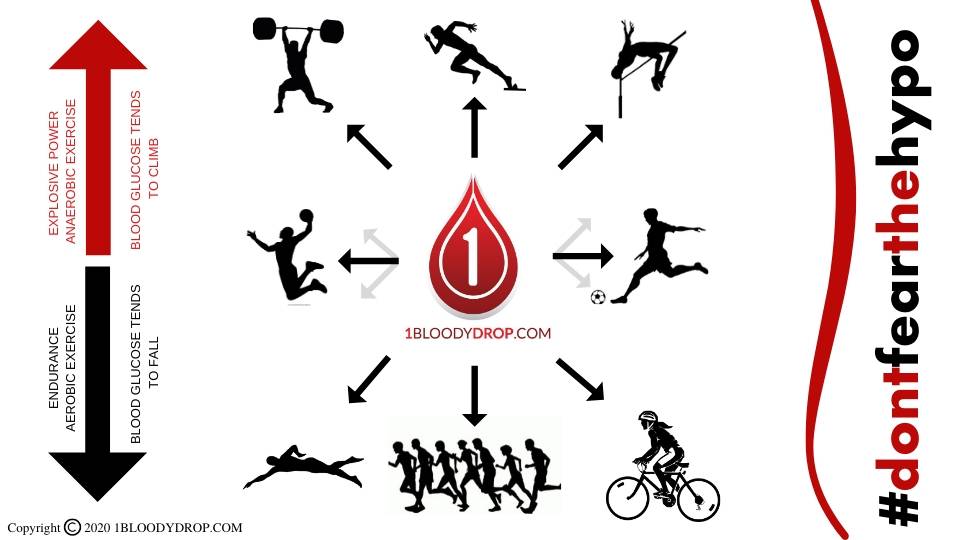controlling diabetes is hard
#dontfearthehypo
controlling my diabetes is hard
Controlling diabetes is hard. We don’t need any evidence to tell us this, we all have our own personal story of just how challenging our own type 1 diabetes is to deal with. We work hard 24x7x365 and we aim for this fictitious flat line blood glucose level, on social media it is sometimes called the unicorn because it is so rare.
I want to tell you a secret. Please don’t tell anybody else because they might start to talk to themselves a little more kindly about their diabetes, are you ready? Even people without diabetes do not achieve flat line blood glucose levels and even more importantly they achieve blood glucose levels that are 100% time in range! I am telling you this because I want you to talk to yourself a little more kindly about your diabetes management.
Exercise will make it harder for me to control my blood glucose levels
It’s true exercise creates some additional challenges in managing blood glucose levels, but the benefits of exercise are even more significant for people with type 1 diabetes than they are for those without; these include improved mental health, improved physical health, for those newly diagnosed with type 1 diabetes exercise extends the honeymoon period significantly and regular exercise helps to reduce the risk of developing the complications of diabetes even though blood glucose levels might be out of range a little more.
Now imagine if you could enjoy improved quality of life, improved physical health and improved mental health and you could find ways to manage your blood glucose levels before, during and after exercise. It turns out that this is entirely possible and it requires some knowledge and education around Carbohydrates (type and timing), Insulin (type and timing of) and Activity (Type and timing); I call these the C-I-A of exercise.
I don't do exercise, I am not interested
Shopping is a dangerous activity, it causes more hypos than all other the other sports I see in my clinic.
- Dr Alistair lumb
what is exercise?
You might be thinking exercise is not for me so I don’t need to read on and that is OK, but before you go please read this paragraph.Exercise and physical activity that affect our blood glucose levels comes in many forms:
- Running / Jogging
- Resistance Work / Weights / Gym
- Cycling / Rowing
- Football / Rugby / Netball / Team Sports
- Mountain Climbing / Hillwalking
- Athletics / Tennis
- Walking / Shopping
- Gardening / Housework
- D-I-Y / Cleaning the Car
- Sex
we all know that diabetes is complicated
we all know that diabetes is complicated, so it comes as no surprise that some sports can make our blood glucose levels go down quickly, others can even make our blood glucose climb.
The diagram here shows how this works for many of us and you are welcome to take a copy of it, by clicking on the download now button.

testimonials
About 1Bloodydrop
Hi, my name is Paul Coker and and I was diagnosed with Type 1 diabetes in 1977 and I want to help you with your type 1 diabetes. I am not a healthcare professional and I do not give medical advice. I created 1bloodyrop.com in 2016; this is my blog and it is designed to help you, and other people living with type 1 diabetes, to manage exercise and type 1 diabetes.
I learned about type 1 and exercise long before the scientific evidence was available by making very careful measurements of my activity levels, carbohydrate intake and blood glucose levels. I developed strategies that worked for me. Then in around 2010 I met Dr Alistair Lumb and he helped me to refine some of my techniques. Since that time I have been fascinated by the growing research and evidence on type 1 diabetes and exercise; and now I am studying for an MSc in Diabetes Practise at Swansea University Medical School.